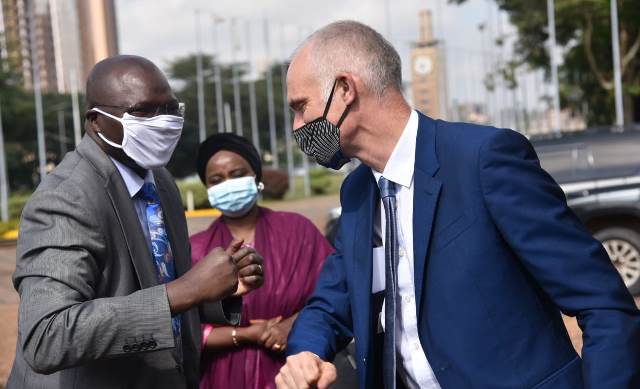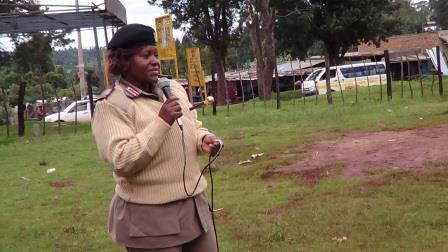The European Union (EU) has offered to feed at least 800,000 slum dwellers in Nairobi to the tune of Ksh 600 million (Euro5 million) for the next three months.
The EU in Partnership with Oxfam, the Kenyan Red Cross Society, Concern Worldwide, ACTED, IMPACT, the Centre for Rights Education and Awareness, and the Wangu Kanja Foundation set the funds to cushion residents in informal settlements
The EU grant will provide 20,000 households living in the Kibera, Korogocho, Mathare, Soweto, Majengo, Gitare, Marigo, Gatina, Lunga Lunga, Kayole and Mukuru informal settlements of Nairobi with monthly cash transfers for three months, beginning in June.
Almost three months after Kenya declared its first confirmed COVID-19 infection, an estimated 30 percent of Kenyans living in Nairobi informal settlements are experiencing severe hunger in the household according to a rapid food assessment conducted in April by a consortium of NGOs.
These households, dependent upon a daily wage, are likely to bear the economic burden of the pandemic and according to the assessment; it shows that only one in four households in Nairobi’s informal settlements had stable income earners.
Speaking during the signing ceremony today at KICC, European Union Ambassador for Kenya, Simon Mordue said the EU itself is contributing Ksh 35 billion to Kenya’s response to COVID-19 whilst EU Member States have already provided more than Ksh 3.3 billion (EUR 30 million)
“The EU is standing with Kenya during this difficult time, providing a lifeline through cash transfers for the worst affected people in Nairobi’s urban informal settlements, including women, the elderly and persons with disabilities”, he noted.

The cash transfer that will be through mobile money transfer, will complement the Ministry of Labour’s Inua Jamii programme with 11,250 households receiving KES 5,668 per month.
A further 8,750 households, identified through the Nyumba Kumi system and independently verified by the Kenya Red Cross Society will also receive KES 7,668 per month .
Labor and Social Protection Cabinet Secretary Simon Chelugui said the funds will go a long way in increasing the purchasing power of vulnerable groups in the country and injecting more liquidity in the economy
‘In a bid to cushion vulnerable Kenyans against the adverse effects of the Coronavirus the government disbursed 7.8 billion shillings under the cash transfer programme, the fund needs an allocation of more than 5 billion shillings during this year’s budget for efficiency and expand to more than the current 21 counties”, he said
He explained that apart from increasing the money circulation in the economy even as government seeks to amend the social security act that will among other things streamline operations in the cash transfer programme to make it more efficient.
Oxfam Kenya’s Humanitarian Director Mat Cousins said Kenya has long been a leader in providing cash-based safety nets and this project therefore builds upon the work by Oxfam and partners in the Urban Early Warning Early Action consortium to improve food security and nutrition for households made vulnerable by COVID-19″
“Solidarity between nations and the most vulnerable in our societies is the only way Covid-19 can be defeated. By mobilizing resources quickly, the European Union has shown its commitment to working in partnership with the people of Kenya, government authorities, civil society and affected communities. This whole of society approach will save lives”, Cousins said .
The project will see improvement of food security covering 50 percent of recipients’ food needs, and other essential costs such as soap, water, rent, and mobile phone credit.
By Wangari Ndirangu




